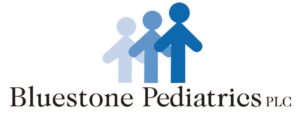
Fever and Your Child
Fever is usually a sign that the body is fighting an infection. Fever can accompany either a viral or bacterial infection but the majority of fevers in children are caused by a viral illness. Fever can affect your child by increasing heart rate, causing him/her to breathe faster, and increasing fluid needs. Fever will generally be lower in the morning and higher in the evenings. While high temperatures may be alarming to Mom and Dad, your child’s actions and behavior are most important. If your child smiles, has periods of playfulness, and drinks plenty of fluids, fever is of less concern. Fever causes NO PERMANENT HARM until it reaches 107° F or over. This usually results from overdressing a feverish child or leaving a child unattended in a closed hot car. We ask you to monitor fever because it can help us evaluate whether your child is getting better or worse and when your child may return to normal activities. Generally a child with fever should not return to daycare or school until the fever has been gone for 24 hours. Many factors such as exercise, bathing, hot weather, warm foods and drinks or being overdressed can affect your child’s temperature and cause it to fluctuate. If you suspect one of these has affected your child’s temperature, correct it and then retake the temperature again in 30 minutes.
Home Care Advice: If you feel your child has fever, take the temperature using a thermometer. We prefer you take the temperature with a rectal thermometer if child is under six months old as this is most accurate. Over six months old you can use a temporal or tympanic thermometer. Do not use an arm pit measurement. Feeling the skin is not accurate.
Home Care Advice: If you feel your child has fever, take the temperature using a thermometer. We prefer you take the temperature with a rectal thermometer if child is under six months old as this is most accurate. Over six months old you can use a temporal or tympanic thermometer. Do not use an arm pit measurement. Feeling the skin is not accurate.
- Medication: We treat fever because it will help your child be more comfortable. Acetaminophen (Tylenol) can be given to children over 3 months of age when the child is especially irritable or has fever or 102⁰ F. Temperatures above normal and up to 102.5⁰ F have been shown to “activate” the body’s natural defenses that help fight infections. Fever medication will reduce fever several degrees but will not return temperature to normal.Ibuprofen may be given on occasion to children 6 months and older for higher fever. Ibuprofen doses must be spaced every 6 hours Do not give aspirin. There is no reason to wake a sleeping child to take a temperature or give medication. Your child will wake if fever has increased and medication is needed.
- Sponging/ Bathing: Sponging or bathing may be needed along with acetaminophen for temperatures above 104⁰ F to reduce fever and help your child feel better.Place you child in a bathtub or lukewarm water (85-90⁰ F). Do not use alcohol. Sponge water over the shoulders and back for 20 minutes. If shivering occurs, increase the water temperature slightly. Sponging should reduce temperatures by a degree or so.
- Offer extra fluids.
- Dress your child in light clothing and avoid adding extra blankets.
- Encourage quiet play.
- Your child is under 3 months of age and has a fever over 100.4⁰ F.
- Fever is over 105° F.
- Your child acts very sick- crying inconsolably, is difficult to awaken or cries when touched.
- Your child seems confused or delirious.
- Your child has symptoms of dehydration- dry mouth, absence of tears, and no urination.
- Your child cannot swallow or is drooling excessively.
- Your child’s neck is stiff.
- Your child has had a seizure.
- Your child has purple spots on the skin.
ADDRESS
Bluestone Pediatrics
4059 Quarles Court
Rockingham, VA 22801
PHONE
Phone number: (540) 437-4800
Fax #: (540) 437-9012
Billing Office: (540) 434-1512
After-hours and weekend emergency phone number: (540) 432-7311
APPOINTMENTS
CHECK-UPS AND SICK VISITS
MONDAY – FRIDAY
8:00 A.M. – 5:00 P.M.
WALK-IN HOURS
ACUTE ILLNESS ONLY:
MONDAY — FRIDAY
8:00 AM — 9:00 AM
SATURDAY
9:00 AM — 11:00 AM
SUNDAY
9:00 AM — 11:00 AM
© 2024 Bluestone Pediatrics | All Rights Reserved | Site design KWGraphicsandWeb